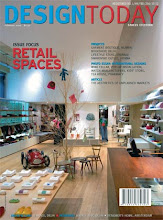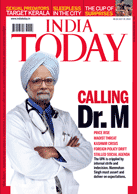
Disposable Mug
It all started at the railway compartment.
This might have been the umpteenth time I was traveling with a wait-listed ticket. Well that’s quite a common sight in this part of the sub-continent.
Indian Railways is the second largest network in the world and every day millions of passengers travel by its trains; with 27% of them being long distance travelers and it has been doing a spectacular job notwithstanding the various kinds of pressures and obstacles it faces. But one area which needs significant improvement is the lavatory.
People use all sorts of materials in the lavatory, e.g., plastic mug, plastic tea/coffee cups, empty mineral water bottles, plastic glass or toilet paper. Given a choice, most of the passengers would prefer products which are portable, disposable and eco-friendly to be used in the lavatory. Indians prefer water to toilet paper.
Indian Railways can maintain the hygiene of the lavatory in a major way by introduction of this disposable mug made of paper. Presently The Indian Railways does not provide anything in the lavatories except water to wash after defecating.
I was informed and inspired by people's behavior and experience — physical, cognitive, social, emotional, and cultural.
Hygiene and ergonomic issues (both physical and cognitive) were my major focus areas.
User survey pointed out that a handle is a must in a mug and that the user’s hand should not touch the toilet floor in any case.
Finally I came up with a folding mug which is made out of a single sheet of paper by a technique called surface development with an inbuilt handle.
I thought of different material options and finalized on hand made paper so that the mug disintegrates after some time to avoid its reuse.
Aesthetic appeal and ease of use :
Cube: one of the basic forms has always fascinated me.
This product of mine shows a gradual transformation between two basic end shapes; a square and a triangle, held within a cubical space.
The gradual transformation also gives the mug its inbuilt handle.
The square base allows the mug to rest in equilibrium and the triangular rim gives the mug its double snout.
The double snout makes the mugs usage easier for both the left and the right handed.
Materials used :
The mug is made up of hand made paper (the grade of paper cannot be disclosed due to IPR issues)
No synthetic adhesive has been used to make it completely eco-friendly. Instead, organic glue has been used.
Advantage over similar products and why it is superior :
No such product exists presently in the market.
The mug I have designed is meant for washing after defecation in lavatories in the train compartments. It can hold about 1.2 litres of water, which is quite an amount of water to fulfill the task.
Presently people find out affordance of other utility products available during journey
(mineral water bottles, tea/coffee cups etc. which are primarily made from plastic) and slightly modify it to use. Disposal of such products create a nuisance in and around the train as well as the railway tracks.
However, my mug disintegrates within about 15 minutes after use.
The mug is foldable and occupies insignificant space of ones luggage.
It easily fits into ones pocket!
Scope for commercial production :
The mug is very easy to manufacture.
One time investment in the mould is required.
After the paper is cut to size it has to be folded and then 4 edges have to be glued.
I have also designed its packaging.
It will be sold in a pack of three for rupees five.
The mug has been selected from over 100 entries all over the country in a national talent search conducted by National Design Business Incubator in 2003.
It has been vetted by an eminent panel comprising NID and IIM faculty in areas of Product Design and Operations respectively.
I am expecting my design registration no. anytime next month. The design application no. is 194452 dated : 06/02/04
I will be applying for a commercial patent very soon.
I have also given a presentation to Mr. R.S. Virdi, EDME (Chg.) Railway Board and finally got his approval on supplying 3 mugs per passenger in the A/C coaches on a trial run for 3 months on trains ex-Ahmedabad. The railway will be distributing these mugs free of cost along with the linen, in A/C coaches.
The Indian consumers are price sensitive and prefer to buy value for money products.
The environmental awareness in India has started affecting marketing of products based upon their eco-friendliness. In general, Indian consumers are likely to buy environmentally responsible products and packs. The future key for marketing could be to select more ethical and ecological responsible products and packaging, which is also convenient for consumers, thus, balancing environmental concerns with commercial considerations.
Winner of Business World Design Excellence Award 2004, “Best Indian Concept”.







































.gif)













No comments:
Post a Comment